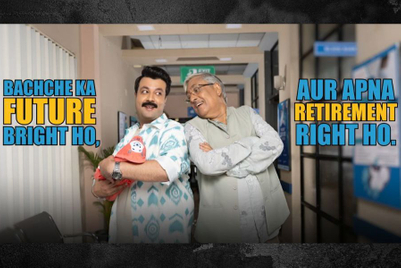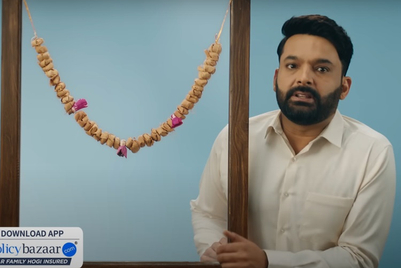Policybazaar has unveiled a new brand campaign that puts the spotlight squarely on the human side of insurance: real people, real situations, and reliable claim support. In a series of emotionally grounded films, families across India share how the company’s claims assistance was not just dependable, but truly life-changing.
Each story, told in the simple, honest voices of those who’ve lived through the stress of a medical emergency or the grief of a loved one’s passing, echoes the brand’s core promise: insurance is not just a financial product, it is a commitment fulfilled when the stakes are highest.
Take, for instance, the story of 3-year-old Akshar, whose sudden hospitalisation sent shockwaves through his family. In the midst of panic, Policybazaar’s claims team stepped in quickly, navigating the hospital process and helping settle a claim worth lakh of rupees. Or 62-year-old Mrs. Mangala, whose daughter Gauri recalls how the company’s support during her mother’s kidney operation brought peace of mind when they needed it most.
Then there’s Pankaj Kumar, who had to be hospitalised seven times for a recurring illness. In each instance, Policybazaar’s team ensured his high-value claims were settled efficiently, allowing him to focus on recovery, not paperwork. Another story features Murali DS, who recounts how Policybazaar stood by his family through his father’s three-year-long battle with cancer, helping them claim a total of INR 1 crore over time.
The campaign also enters the deeply emotional terrain of term life insurance, highlighting the financial lifeline it offers in the face of irreversible loss. Dhiraj Arora, now raising his 10-year-old son alone after the passing of his wife Dipti at age 38, shares how her policy helped secure their son’s education and how Policybazaar handled the process with sensitivity and urgency. Likewise, Shweta Kumari speaks of the sudden loss of her husband Nitesh at just age 35, and how the claim support helped her keep the household running and her children’s dreams intact.
Commenting on the campaign, Samir Sethi, head of brand marketing at Policybazaar, said, “Insurance is a promise that only proves its worth when it delivers: fast, fair, and with empathy. Our customers’ stories are a testament to the kind of claims support we believe in. These testimonials are not scripted; they are lived experiences. And we’re proud to have been there for every one of them.”
Jerry Bhutia, chief sales officer at Policybazaar, added, “Not every story can be captured in a single film, but every story matters. Behind every successful claim is a team that understands urgency, compassion, and the need to simplify a complex process for families under stress. This campaign is our way of showing how serious we are about being there for our customers when they need us the most.”
Campaign’s take: Insurance ads aren’t usually known for emotional nuance. But Policybazaar’s latest six-film campaign veers away from calculators and contracts to land squarely in the ER waiting room—and the living room—at the worst possible moments. Narrated with understated honesty by actor Sumeet Vyas, the series isn’t a tearjerker for drama’s sake. It’s a reality check on what really fails most people during a health or life emergency: their bandwidth to deal with bureaucracy.
From three-year-old Akshar’s hospitalisation to the long-term trauma of a father’s cancer treatment, the campaign doesn’t flinch from the messy bits—because that’s where Policybazaar claims it steps in. The spotlight isn’t on premiums or policies, but on the brand’s claim support acting as a steady hand during chaos. Whether it’s guiding widows through term insurance claims or easing the burden on families managing recurring hospital stays, the films deliver their message: at a time when grief and panic peak, empathy matters.
It’s an unusual move for a category that often reduces peace of mind to a bullet-point promise. And in an industry frequently accused of ghosting customers post-purchase, Policybazaar is betting on emotional receipts—not brochures—to build credibility. Whether it works, only time (and Twitter) will tell.



.jpg&h=334&w=500&q=100&v=20250320&c=1)









.jpg&h=268&w=401&q=100&v=20250320&c=1)


.jpg&h=268&w=401&q=100&v=20250320&c=1)
.jpg&h=268&w=401&q=100&v=20250320&c=1)
.jpg&h=268&w=401&q=100&v=20250320&c=1)

